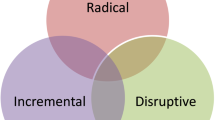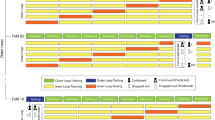Abstract
IT is well established that occupational attitudes can be shaped by educational experiences1, but comparatively little is known about the specific effects of a British university education. Becker et al.2,3 have differentiated the effects of higher vocational and non-vocational education in the United States. They found attitude changes to occur, but whereas, in the former, students came to see themselves as members of their prospective professions, in the latter, they tended to identify with their subjects. Various official reports4,5 in recent years have taken the view that university education in Britain chiefly promotes identification of the second kind.
This is a preview of subscription content, access via your institution
Access options
Subscribe to this journal
Receive 51 print issues and online access
$199.00 per year
only $3.90 per issue
Buy this article
- Purchase on SpringerLink
- Instant access to full article PDF
Prices may be subject to local taxes which are calculated during checkout
Similar content being viewed by others
References
Musgrave, P. W., Educ. Res., 9, 175 (1967).
Becker, H. S., and Carper, J. W., Amer. Sociol. Rev., 21, 341 (1956).
Becker, H. S., Geer, B., Hughes, E. C., and Strauss, A. L., Boys in White: Student Culture in the Medical School (Univ. Press, Chicago, 1961).
The Brain Drain, Report of the Working Group on Migration, Cmnd 3417 (HMSO, London, 1967).
The Flow into Employment of Scientists, Engineers and Technologists, Cmnd 3760 (HMSO, London, 1968).
Blau, P. M., and Scott, W. R., Formal Organisations (Routledge and Kegan Paul, London, 1963).
Kaplan, N., in Handbook of Modern Sociology (edit. by Faris, R. E. L.), 852 (Rand McNally, Chicago, 1964).
Goldberg, L. C., Baker, F., and Rubenstein, A. H., Amer. J. Sociol., 70, 204 (1965).
Child, D., and Musgrove, F., Educ. Rev., 21, 209 (1969).
Astin, A. W., J. Educ. Psychol., 55, 276 (1964).
Rosenberg, M., Occupations and Values (Free Press, Illinois, 1957).
Pelz, D., and Andrews, F. M., Amer. Behav. Scientist, 6, 43 (1962).
Gannicott, K. G., and Blaug, M., Higher Educ. Rev., 2, 56 (1969).
Wyatt, H. V., J. Biol. Educ., 3, 143 (1969).
Hirst, P., in The Study of Education (edit. by Tibble, J. W.), 29 (Routledge and Kegan Paul, London, 1966).
Cohen, L., and Batcock, A., Educ. Rev., 21, 234 (1969).
Author information
Authors and Affiliations
Rights and permissions
About this article
Cite this article
SMITHERS, A., TOOMEY, D. & MELROSE, M. Occupational Orientations at Bradford and Warwick Universities. Nature 228, 1113–1114 (1970). https://doi.org/10.1038/2281113a0
Received:
Issue date:
DOI: https://doi.org/10.1038/2281113a0



